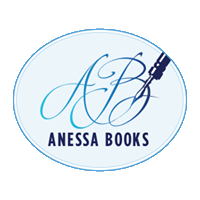 If you’ve read this blog for any length of time you’ll probably know that I am the queen of worksheets. I love them. I use them. I even sell them! Well, as I was searching through my files this morning, I happened upon a worksheet I’d completely forgotten about and it’s a shame because I think it could be really useful!
If you’ve read this blog for any length of time you’ll probably know that I am the queen of worksheets. I love them. I use them. I even sell them! Well, as I was searching through my files this morning, I happened upon a worksheet I’d completely forgotten about and it’s a shame because I think it could be really useful!
I called it a Book Summary Worksheet, but it’s a great way to think about your book either before you start or after you’re done writing or both! And it’s just four simple questions:
- Why do I want to write this book? Who cares? Why should I care? Why should my readers care?
- What point is the book making?
- What’s the plot/logline/elevator pitch?
- Jacket copy
Easy-peasy, right? Yeah, I can hear you laughing. These are incredibly simple-sounding questions, and yet probably really difficult to answer. And yet, they are also incredibly important to know the answers to.
So, why do they make a difference? Why do you need to know these things?
Well, first of all, if you don’t know why someone should care about your story, it’s unlikely that anyone will. If no one cares about the story, no one will read it. It’s as simple as that. This is the hardest question to ask another writer – why should someone care about your story? I did that once as a new teacher of writing and just watched my student’s face crumble. It was probably not kind and not pretty to see a grown man nearly cry. But he got it. He understood, after some explaining from me, why it was so essential that he know the answer. I say the same to you. Make sure you know the answer. Make sure you care because if you don’t, your reader won’t.
The second question isn’t any easier. You may be writing a mystery and think the point of the book is solving who done it, or writing a romance and the point is for two people to fall in love. But, really, there’s got to be more there. There’s got to be a deeper meaning to your mystery, to your fantasy, to your romance. It could be that love triumphs overall, but think more deeply than that. What is it that the main characters are trying to overcome? If your hero is incredibly shy, then perhaps the point of the book might be that it’s worth it to take a chance and reach outside of your shell. If your murderer is killing for revenge then perhaps the point of the book is that revenge never pays—or that it does if he either gets away with it or gets greater satisfaction from the murder than he cares about being locked up for the rest of his life.
There’s always got to be a deeper meaning to your story, just like there’s always got to be a larger goal for your characters and they’ve got to learn something and grow through your story – and, yes, they are frequently tied together.
The third question asks for you to write your logline or elevator pitch. Why? Because everyone and your uncle are going to ask you what you’re working on and you’ve got to be able to answer them in a way that their eyes don’t glaze over before you’ve gotten halfway through your answer. It also helps you when you’re writing to keep this in mind—it helps you keep on track and will very likely end up in your book description or ad copy.
Which brings us to that book description. If you write your book description before you even start writing the book, it will help you stay focused on what it is you’re writing. It will give you an idea of who your characters are and remind you of what they want. It’s a useful thing to have on hand as write, as well. However—and this is a big however—your description and your characters are very likely going to change as you write the book. This is fine! Don’t worry about it! You’ll just have to write a new description after the book is done.
The first book description you write before you write the book is for you, the one you write afterward is actually going to be your sales copy. It’s got to be filled with keywords and not actually give the entire plot away. It’s for marketing purposes, as opposed to the first one you write which is only for you to remember the bigger picture goals of your characters.
So, four simple (ha, ha) questions. One amazing worksheet that you will probably want to keep on hand before, during, and after you write your book. You’re welcome! 😀
